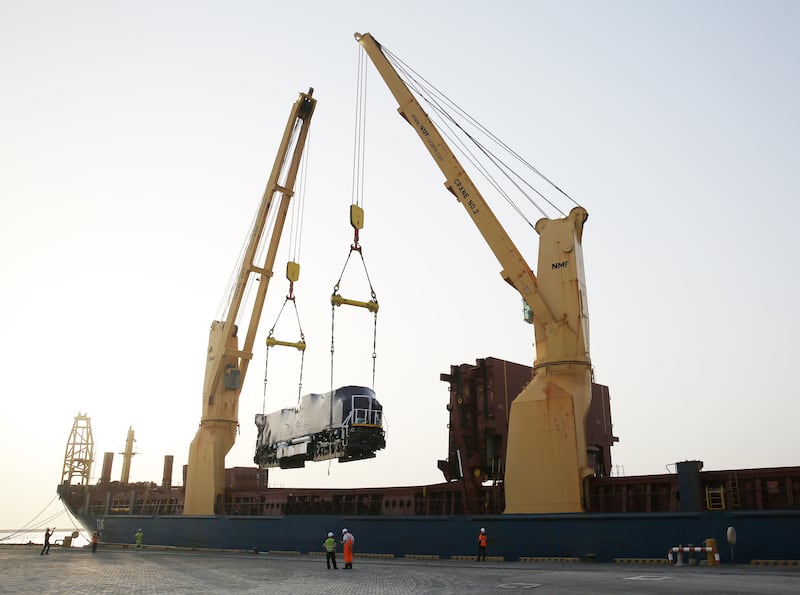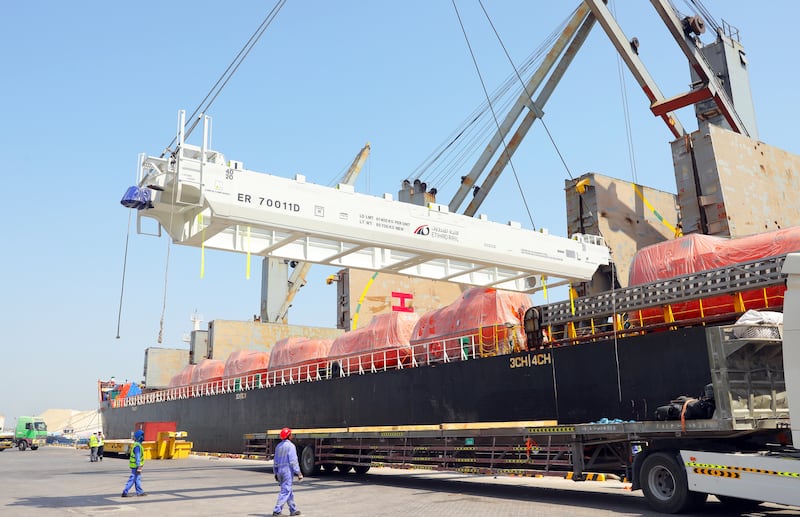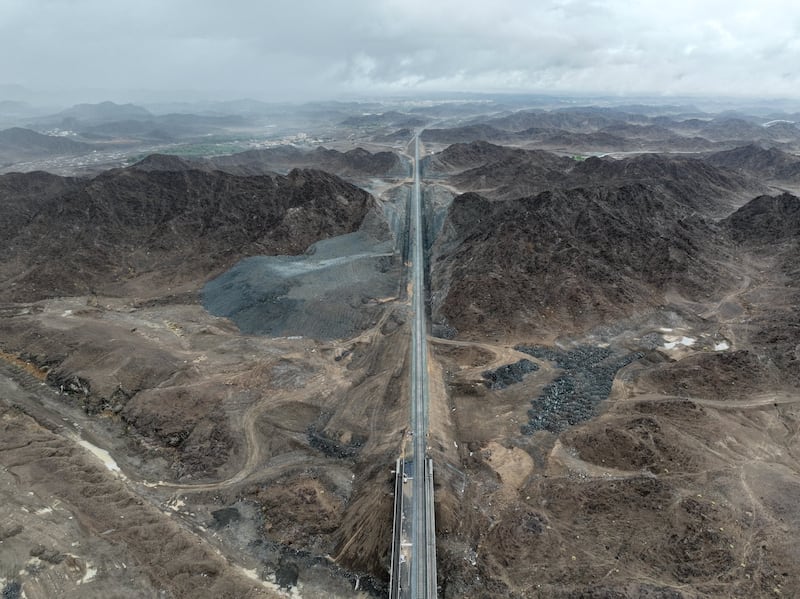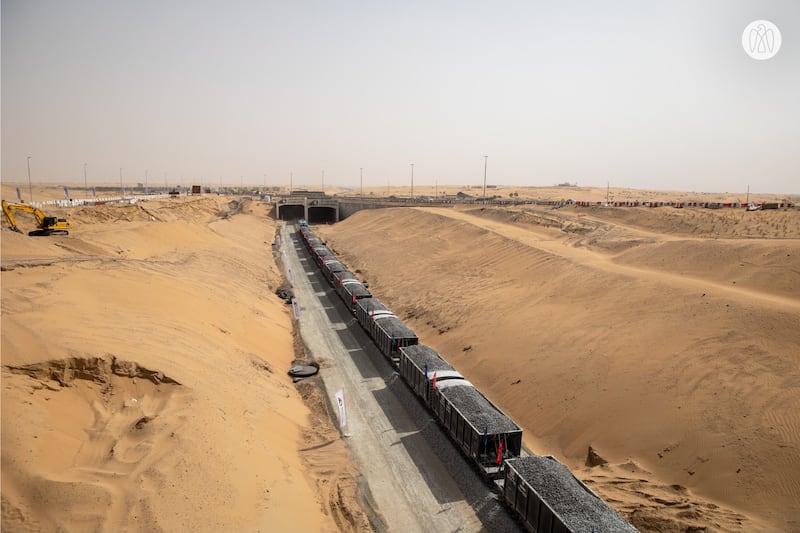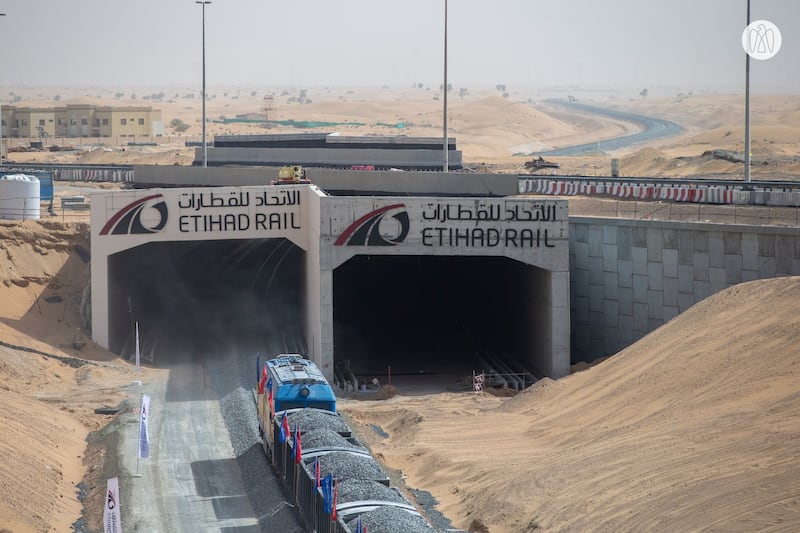UAE national rail network developer and operator Etihad Rail has connected a major freight terminal that is still under development to the network's main line.
Planned to be a logistics centre, the terminal at Industrial City of Abu Dhabi (ICAD) will cover more than 2.7 million square feet when complete, Etihad Rail said on Friday.
It will be the largest inland freight terminal in the country and will handle more than 20 million tonnes of cargo a year.
Etihad Rail completed the laying of tracks and conducted successful tests on the new line, which extends from the border with Saudi Arabia to the Port of Fujairah.
Stage Two developments
The development of the ICAD railway freight terminal is part of the second stage of the UAE’s national rail network.
“This milestone brings us closer to achieving our goal of providing an integrated transport system that connects the industrial and manufacturing centres with freight terminals and ports across the emirates,” said Mohammed Al Marzouqi, executive director of the rail relations sector at Etihad Rail.
“The strategic location of the ICAD railway freight terminal will also drive value for all our customers as it is the largest indoor railway freight terminal in the UAE.”
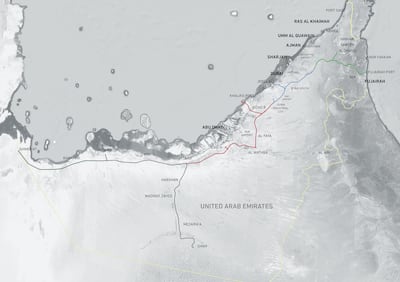
The terminal will comprise 22 buildings and major structures to support operations and it will process up to nine trains a day.
It will enable the distribution of goods across the GCC and UAE, where it will connect quarries in the Northern Emirates to industrial centres in Abu Dhabi's Mussaffah area, in addition to linking Ruwais, Khalifa Port and container companies operating within Dubai's Jebel Ali port.
“We are proud of this achievement, which supports our efforts to encourage companies to restructure their logistical operations and opt for rail logistics solutions, thereby cutting costs, increasing efficiency and providing safer transportation of goods,” said Mr Al Marzouqi.
Operating around the clock
The terminal will be open 24 hours a day, seven days a week. When fully operational, it will process more than 15 million tonnes of loose raw materials, 1.5 tonnes of general cargo, and about 116,600 20-foot shipping containers annually.
Etihad Rail said in May that 75 per cent of the network was now complete. Construction has been divided into two stages, the second of which includes four phases.
Etihad Rail offers glimpse of passenger travel experience
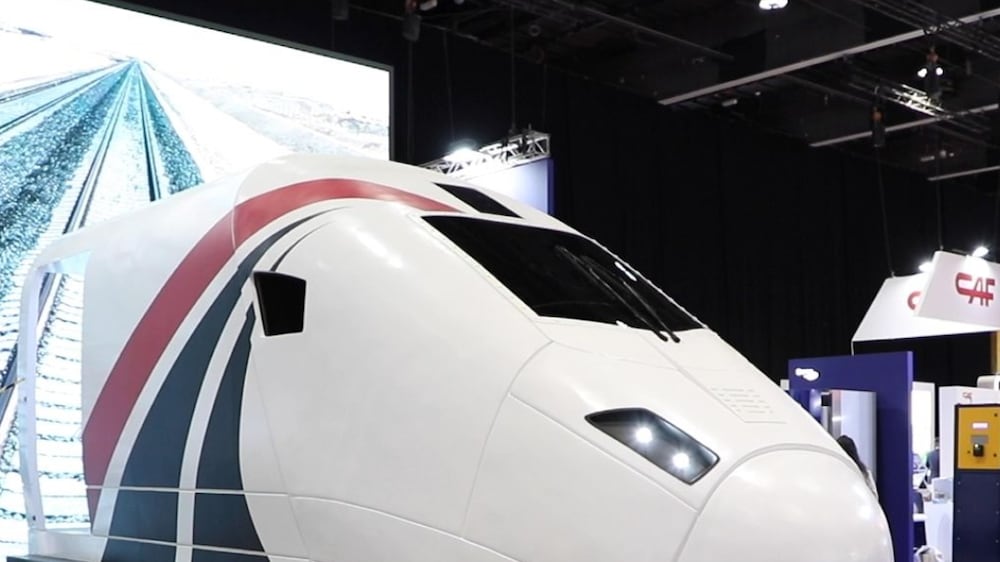
The first stage, a freight service linking gasfields in Shah and Habshan to Ruwais, opened in 2016.
Each day, the freight service carries up to 22,000 tonnes of granulated sulphur to Ruwais, from Habshan and Shah, on behalf of Adnoc.
Stage two links up Ghuwaifat in the west to Fujairah in the east.
The new network will reduce commuting time by 30 per cent to 40 per cent, compared with other modes of transport.
Travelling from Abu Dhabi to Dubai, and from Dubai to Fujairah, will take 50 minutes, while Abu Dhabi to Al Ruwais will take 70 minutes, and Abu Dhabi to Fujairah 100 minutes.
A launch date for the passenger line and the exact route for this service have yet to be announced but plans for the first passenger station in Fujairah have been unveiled.
The passenger trains will travel at up to 200 kilometres an hour and will link 11 cities and areas. Each can carry about 400 people.
Carriages will be equipped with vital amenities such as Wi-Fi, entertainment systems, charging points and food and beverage services. Seating will include first class, business class and economy.
Once operational, the service is expected to carry more than 36 million people annually by 2030.
